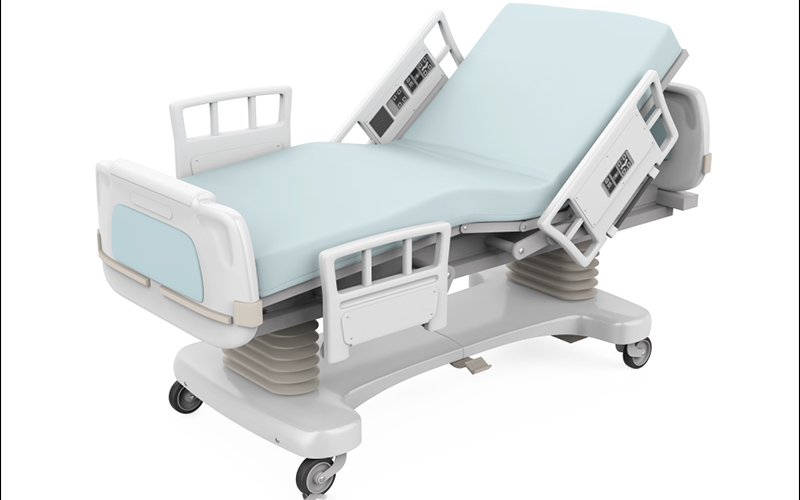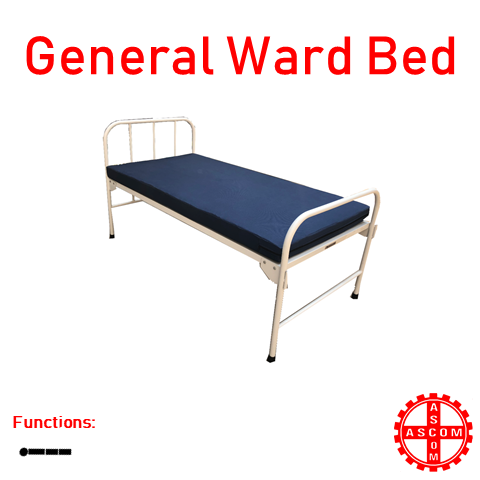The Greatest Guide To Hospital Beds For Home Use
Table of ContentsNot known Facts About Hospital Beds For Home UseThe Only Guide for Hospital Beds For Home UseThe Greatest Guide To Hospital Beds For Home UseSome Known Questions About Hospital Beds For Home Use.Getting My Hospital Beds For Home Use To Work7 Easy Facts About Hospital Beds For Home Use ShownWhat Does Hospital Beds For Home Use Mean?
There are 3 primary types of hospital beds: manual, semi-electric, and fully-electric. These beds make use of hand cranks to adjust the bed's height and elevate and lower the head and the foot.
Semi-electric beds have an electrical motor to elevate and decrease the head and foot sections of the bed (hospital beds for home use). Full-electric beds have an electrical motor that can elevate the head and foot areas of the bed as well as the whole height and positioning of the bed.
The Greatest Guide To Hospital Beds For Home Use
There are several types of hospital beds, each designed to meet specific client needs. Below are some usual types: This is the most usual kind of healthcare facility bed, designed for basic clinical use.
Lower to the ground than a standard bed. This type of bed is made for bigger patients, with a broader framework and higher weight capacity than a typical bed.
This sort of bed is developed for critically ill individuals that need open surveillance and specialized medical devices such as ventilators and mixture pumps. This sort of bed is developed for usage throughout labor and shipment, with adjustable settings and attributes to support the mother and baby throughout the birth process.
Rumored Buzz on Hospital Beds For Home Use
Numerous function and the devices perform increasing grip to various components of the vertebra and the extremities without relocating the body. These are just a few examples of the types of hospital beds readily available. The certain sort of bed made use of will depend upon the person's problem, clinical requirements, and other factors.
Right here is things you need to understand. A one-function hospital bed is a medical bed that permits a client to relocate only the head or foot area up or down. A 2 feature hospital bed commonly refers to a sort of medical bed that has 2 flexible functions to assist individuals in healthcare facilities or treatment facilities.

About Hospital Beds For Home Use
A 7-function ICU bed is a kind of medical bed that provides a number of adjustable functions to sustain critically ill clients in an extensive care device (ICU) (hospital beds for home use). The seven functions usually include: Backrest change: The back-rest can be gotten used to different angles to aid the person stay up or rest pleasantly
Elevation modification: The bed can be elevated or decreased to make it easier for people to get in and out of bed, and for caregivers to offer care. Trendelenburg setting: The whole bed can be tilted to promote blood flow and circulation in the body. Reverse Trendelenburg setting: The bed can also be tilted in the contrary instructions to promote blood flow and circulation in the upper body.
1. What Size is a Healthcare Facility Bed? 2. Just how Much Does a Medical Facility Bed Price? 3. Why Do Hospital Beds Have Side Bed Rails? 4. What Are The Key Hospital Bed Components?. While even more budget friendly than electric designs, these beds call for exertion for modifications. The primary benefits of manual beds are their affordability and reliability, as they don't depend on electrical power. The requirement for hands-on effort can be a limitation in situations where quick adjustments are required or where caretakers face physical challenges.
The Main Principles Of Hospital Beds For Home Use
They are well-suited for clients who call for very little rearranging for comfort or medical requirements. Semi-electric hospital beds use a balance of handbook and electrical controls. The head and foot sections are generally readjusted with electrical controls, while the elevation is browse around here readjusted manually. These beds give an excellent happy medium between handbook and totally electric alternatives, offering ease of use without the complete expense of electric models.
Semi-electric beds are fit for individuals who need modest modifications to the head and foot areas yet can handle without constant height modifications. This makes them a cost-efficient option for those seeking comfort and convenience without the requirement for constant repositioning. Totally electric healthcare facility beds feature electric controls for seamless adjustments to the elevation, head, and foot areas.
Specialized hospital beds, such as ICU beds, long-lasting care beds, and bariatric beds, are thoroughly made to attend to details clinical needs. These beds supply customized look after varied person teams, boosting both outcomes and convenience. In the complying with areas, we will check out the primary sorts of specialty health center beds, describing their certain advantages and applications.
With years of experience in manufacturing electrical linear actuators - hospital beds for home use and close collaboration with the healthcare industry, TiMOTION is well-positioned to give trustworthy medical care remedies. Our vertically integrated firm takes care of every step of the production process, from design to actuator setting up, ensuring we supply phenomenal worth and personalized solutions customized to your specific requirements
Getting My Hospital Beds For Home Use To Work

To find out more about incorporating these modern technologies into your products, contact us today. Additional analysis:.
Data is sourced from the Medicare Price Report.

The Greatest Guide To Hospital Beds For Home Use
A healthcare facility bed is a bed designed especially for medical purposes. It is not just an area for individuals to relax, however additionally a system for medical operations. Unlike normal home beds, hospital beds typically have adjustable attributes, which can help with clinical staff to make numerous changes according to the requirements of individuals, such as altering the height, disposition, and support angle of the back and legs of the bed.